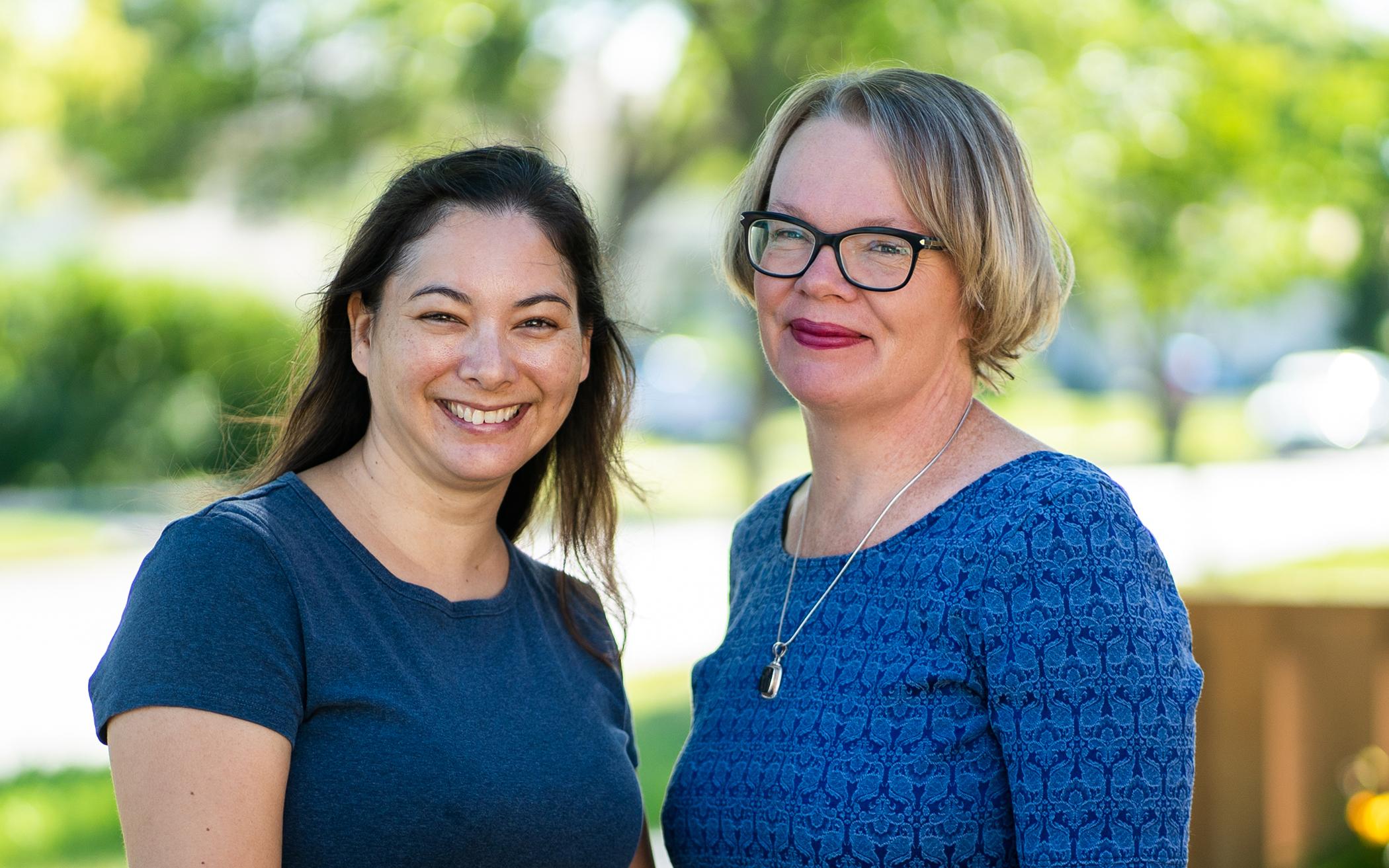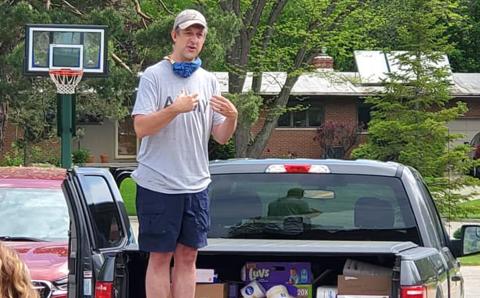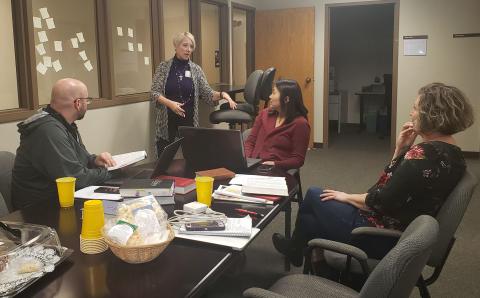For the first time in the 42 years since the Indigenous Family Centre began, an Indigenous person is stepping in as its director. The center, operating in the North End of Winnipeg, Man., is one of three Urban Indgenous Ministries run by the Christian Reformed Church. Shannon Perez, who currently works as Justice and Reconciliation Mobilizer for the CRC’s Canadian Indigenous Ministry Committee, has taken over about 25% of the job and will gradually transition to the full directorship over the next several years. She will succeed current director Michele Visser-Wikkerink.
Perez, 41, lives in Winnipeg and is from the Dené peoples in Manitoba. She started the transition to director in May.
“Doing things this way is consistent with the values we have been trying to encourage in the Christian Reformed Church—recognize, be a part of, invest in Indigenous leadership and participation,” Perez said. “Those are all messages we try to convey as CIMC in the work that we’re doing.”
Visser-Wikkerink, 52, has served the Indigenous Family Centre since 2009. “When I started here, the fact that I’m a non-Indigenous person really struck me. I mean, I’m so grateful for the opportunity to work here, but I just thought, this needs to be an Indigenous position.
“I always thought, if there’s a Christian Indigenous person who wants this position, I would step down,” Visser-Wikkerink said.
Almost from the time Visser-Wikkerink began her work at IFC, she had planted the idea in Perez’s mind that the younger woman should consider becoming the center's director. The two knew one another through involvement at Good News Fellowship Church, a Christian Reformed congregation in Winnipeg. Visser-Wikkerink said it was important to her that when it came time for her to leave, that IFC would be in a position of strength and that transitions would happen in a way that isn’t harmful to the community.
Perez said she now feels ready to step into Visser-Wikkerink’s role, having learned practical governance skills serving on the board at IFC for eight years, two years as trustee for the Syisi Dené First Nation Relocation Settlement Trust, and on the board of her children’s daycare for eight years.
Starting at just a quarter capacity allows Perez to continue her part-time job with CIMC, ensuring there is no gap in that important work.
“It’s a living, breathing example of what we feel we’re called to do as Christians,” Visser-Wikkerink said. “We talk a lot about discipleship and mentoring and helping people lead, but when it comes time for those folks to step up, we don’t always like to step back. You don’t usually work with someone in the position you’re in in order for them to take it over, but it’s an entirely biblical way of doing leadership.”
Darren Roorda, who serves as Canadian Ministries Director, and as a supervisor for both Visser-Wikkerink and Perez, agreed. “There is an important principle here at play,” he said. “That is the principle or philosophy of autonomy and ownership fitting to the context. When a person of a particular group, culture, or ethnicity can be fully in ownership of a ministry effort, then it should be pursued.”
So far Perez is working on helping with applying for grants; taking calls two days a week from the public to answer their questions about IFCs programs or from organizations who want to partner with the center; and building relationships with the community. At the moment that is limited as the center’s hours and services are affected due to COVID-19 (an infectious disease declared by the World Health organization to be a global pandemic since March).
Mike Hogeterp, director of the Centre for Public Dialogue and Perez’s current boss, would like to see this mentorship model of changing leadership become more commonplace in the denomination. “This staged transition will give Shannon a wonderful opportunity to build deepening relationships in the IFC community, learn about the gifts and assets of the community and benefit from Michele's experience,” Hogeterp said. “This is a creative and organic approach to leadership transition that I would love to see us use when possible.”
Visser-Wikkerink sees the development as part of the continuous growth of the center.
“IFC was started by some incredibly visionary people who wanted to do things differently. They, right from the start, ensured that Indigenous voices had equal power within the council. They sought to amplify Indigenous voices. Culturally, they chose to participate in different practices and they took a lot of criticism for that, but persisted anyway. So right from the start, IFC had that in mind. We have been slow to catch up on a leadership level,” she said.
About the Author
Krista dela Rosa is a freelance news correspondent for The Banner. She lives in Winnipeg, Manitoba, Canada and attends Good News Fellowship Church.






